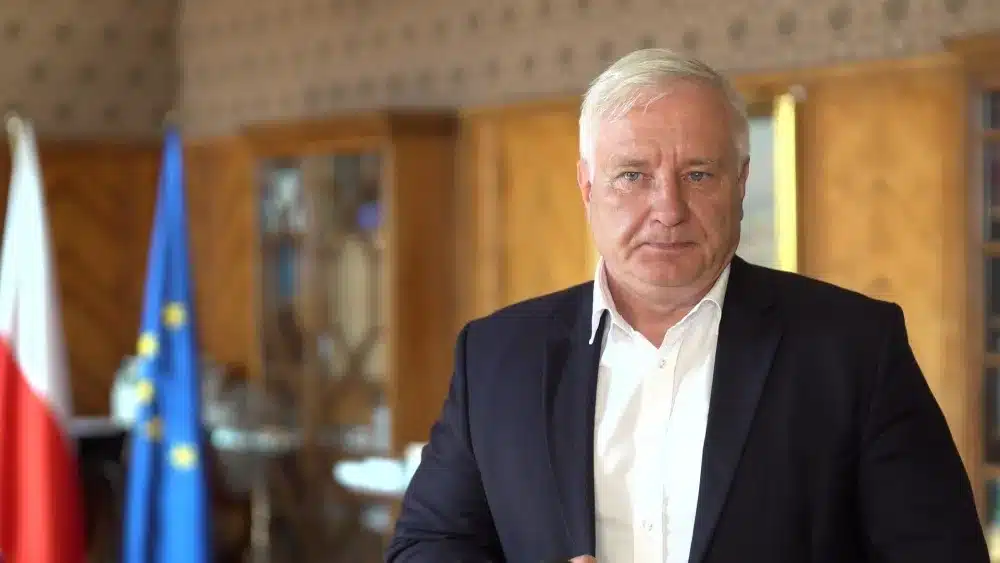For the past two months, the topic of the proposed reform of the Polish Academy of Sciences by the Ministry of Science and Higher Education has dominated discussions about the institution. The scientific community, representatives of the PAN and research institutes, have serious reservations about the ministry’s project, which – in their opinion – diminishes the academy’s status and limits its autonomy. During last week’s meeting with Minister Dariusz Wieczorek, the General Assembly of PAN appealed for a return to discussions about necessary changes in the institution. The minister also assured that he is open to proposals and nothing will be changed without dialogue.
“The Polish Academy of Sciences needs internal change to improve the functioning of the institution, but not by bringing it closer to the world of politics, as this law also does, but by increasing our independence. But it will not be effective if the level of financing, particularly for the institutes of the Polish Academy of Sciences, remains as it is,” says Prof. Marek Konarzewski, President of PAN, to the Newseria Biznes agency.
This year, the Ministry of Science and Higher Education has increased the funding of PAN institutes by almost PLN 190 million. According to calculations by the directors of these units, this is approximately a 20% increase compared to last year while subsidies for universities have increased by 27% y/y.
“This increase barely compensated for the needs related to salary increases that occurred in all institutions of the science and higher education system,” emphasizes the President of PAN. “We don’t want to be treated better, just equally, so this year we need an additional 50 million PLN to even out and we will ask for this money to survive. I’m not talking about development here, I’m just talking about maintaining our honorable place in the science system in Poland. Despite being a small unit in the context of the whole system, we are still a part of Polish science that is the best, as all international rankings show.”
The accumulated scientific achievement of the network of 68 research institutes would place around 100th in the Shanghai ranking if considered collectively, while the best Polish universities (with much larger scientific staff) rank around 500th.
For many PAN research institutes, the lack of significant increase in science funding in next year’s budget may deepen financial problems, regardless of the form of the reform. In one of the previous interviews, the president of the academy noted that in 2023, 40% of salaries in PAN institutes were below the minimum wage – due to limited funding, the wage growth could not keep up with the rise of the minimum salary. The dynamic increase in the costs of media and scientific apparatus operation is also a significant problem.
Unlike other sectors of the economy, Polish science does not place many hopes on the improvement of the situation with the funds flowing to Poland from the National Recovery Plan.
“It’s regrettable to say that the Polish Academy of Sciences, like the whole system, is not a beneficiary of the National Recovery Plan. Unfortunately, only about 1% of the funds from the plan will go to science in Poland. This is very bad because the NRP is supposed to modernize the country, so the question is, how are we supposed to modernize the country without science? I don’t know the answer,” says Prof. Marek Konarzewski.
As he emphasizes, part of the funds from the NRP could go to the development of scientific thought, especially in sectors important for the modernization of Poland, which are among the priorities of the plan. The expertise prepared for the government, however, are not commercial projects.
“It’s energy, environmental protection, better infrastructure management. We have a lot to say on very specific issues, like the Central Communication Port or how to build nuclear power. All this would probably be much better used if funds from the NRP flowed to science in Poland, including the Polish Academy of Sciences. But unfortunately, these are marginal funds that will reach us,” says Prof. Marek Konarzewski.
In his opinion, this may also affect the efficiency of the use of funds from the National Recovery Plan in the entire economy.
“I’m curious when these funds start to be distributed and accounted for, whether we won’t be asked to use them, because the institutions to which these funds are directed may not simply be able to make good use of them,” analyzes the president of PAN.
